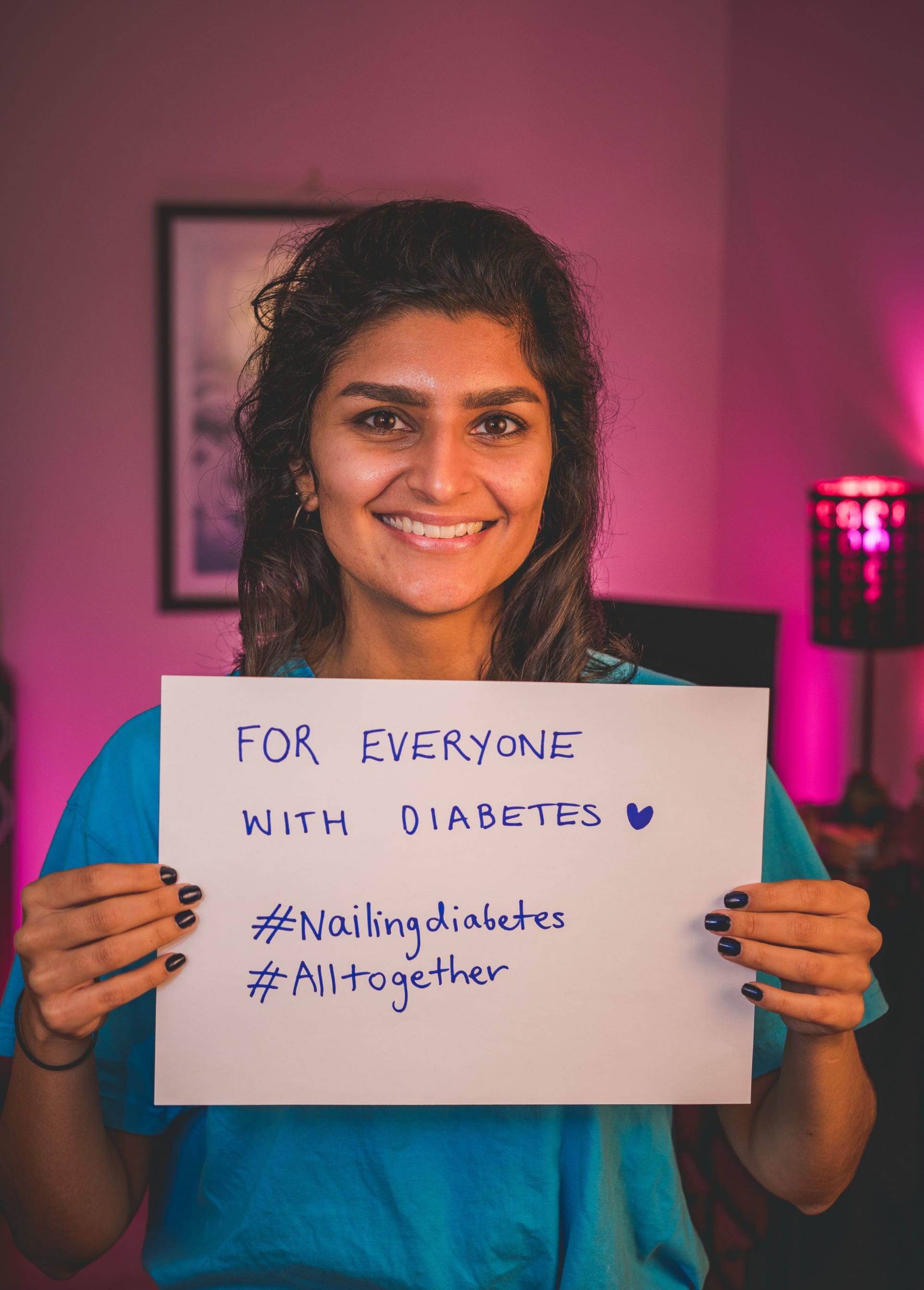
This year marks the 100-year anniversary of the discovery of insulin, the hormone responsible for regulating blood sugar levels in the body. Until the early twentieth century, diabetes was a fatal disease, then, in January 1922, a 14-year-old called Leonard Thompson who was dying from type 1 diabetes, became the first person to receive an injection of insulin. His life was saved and shortly afterwards insulin went into mass production. Diabetes UK (known then as The Diabetic Association) was founded in 1934 by novelist HG Wells and Doctor RD Lawrence – both of whom had type 1 diabetes – to improve access to insulin for all.
We talk to Branwen Bindra, a volunteer with Diabetes UK, and Oxfordshire mum Sam, to hear their stories.
“I grew up with three younger brothers,” says Branwen, “and when the middle one was 10, he was diagnosed with type 1 diabetes. Diabetes changed our family life in an instant and there were lots of challenges to which we had to adjust. Suddenly, our lifestyle revolved around diet, needles, and blood sugar levels. My brothers and I sat with him when he was first diagnosed and we all did blood tests on ourselves so that we had an idea of the experience he would be going through in future, day in and day out.
From an early age, growing up with a diabetic brother, I learnt that it is not just about dealing with the condition physically, it is also about the mental health impact of those who suffer from it and how that can affect those around them. Not everyone can cope with the balancing act of regular blood tests, feeding themselves and taking the correct amount of insulin. It is not an exact science due to the many variables that can affect blood glucose levels. For those who live with this hidden condition, it is an hour-by-hour challenge and you are effectively manually trying to replicate the automatic human engineering non-diabetics take for granted.”
Branwen moved to the UK in 2018 and decided to volunteer for Diabetes UK. “I was very impressed with the clarity of their website which was packed with useful information and helpful tips as to how I could get involved. I was interviewed at the headquarters in London and had extensive training before I was accepted as a ‘Speaker Scheme Volunteer’. I have given talks to raise awareness about the condition and how to recognise the early warning signs that someone may have diabetes. The four most common symptoms are, (the four Ts): Toilet, Thirsty, Tired and Thinner. If you need to go to the toilet a lot, losing weight, are always thirsty and always tired, then you should be checked out.”
Branwen also volunteers at weekend events for the families of children who have recently been diagnosed with type 1 diabetes. These are all over the country and are often life-changing experiences for both the children and their families. It is usually the first time that a child meets another diabetic with the condition and is an opportunity for parents and other children in the family to meet others who are going through similar experiences. Many of the volunteers at these events have diabetes or have experience with family members with the condition. There are always plenty of health professionals and dieticians on hand to provide advice and support. Children can attend diabetic camps and experience activities such as canoeing and rock climbing.
“It was great to see that my brother, and others like him, can take part in these kinds of activities. Whilst participating, he also had to take responsibility for his insulin consumption, with the security of being overseen by volunteers. I have run sibling support sessions in the past. It’s incredibly rewarding. Often siblings of those with the condition understand the biological condition very well but not the impact it can have, so there’s a focus on emotional support. It’s important to make sure that siblings have an opportunity to open up and feel heard and it can be very moving. It is often difficult for them to talk freely within the family because everyone has to remain very strong for the family member who has the condition. We talk about the pros and cons of living with a sibling with diabetes. Often these children feel that all their parents’ attention is focused on the sibling who has diabetes, and they often feel a lot of responsibility to help look after that sibling. On the plus side, the family does get priority boarding on aeroplanes and there are always sweets around the house! It isn’t just the children with diabetes who make friends for life at these weekend events, often the siblings do too.”
Branwen’s brother is now a young adult and continues to deal with the daily challenges that come with being diabetic, but he also takes individual responsibility for his long-term health. “The work of Diabetes UK is so valuable for increasing awareness and providing practical information to help people manage better with an emphasis on good control of blood sugar levels, education, and continuing engagement with health professionals,” says Branwen. “However, most important is that individuals and families realise that they are not alone.”
“At the last event, I met my first ‘diabetes-aware’ dog and it was incredible. She could sense whenever the child’s blood sugar level had fallen too low and alert the family. I’d love to see more of them in the future.”
A dog’s nose is an amazing bio-sensor – research has indicated that dogs are capable of detecting tiny traces of an odour created by different diseases (around one part per trillion – the equivalent of one teaspoon of sugar in two Olympic sized swimming pools) and medical detection dogs can, for example, detect the scent of Covid-19 with a high degree of accuracy. They can also be trained to recognise and respond to minute odour changes emitted prior to an emergency situation, including in Type 1 Diabetes sufferers, and alert the person/family to take preventative action and yet medical detection dogs for diabetics are still relatively rare.
We talked to Oxfordshire mum, Sam, whose son Max also has type 1 diabetes and whose family includes Labrador retriever Lucy. “Max was diagnosed when he was six,” she says, “and we got Lucy simply as a family dog when he was nine. When she was only a few months old I noticed that she responded differently to Max than to my other children, particularly when his sugar levels were low. I’d heard of guide dogs for the blind, of course, and sniffer dogs, and I remembered hearing something about medical detection dogs on the group chats for parents of diabetic children, so I investigated: it seemed like a real opportunity. When Lucy was one, we found a dog trainer who came once a month for about six months and in between his visits I did five minutes of games with her every day using small pots of Max’s saliva, rewarding her if she reacted when his blood sugar was outside of a normal range (4-7 Mmol). She was eager to learn and keen to please and would do anything for a treat! Then we hid the pots in Max’s clothing and before long she just smelt the chemical changes in his body directly on his breath. Now if his blood sugars are getting too low or too high, she nudges me or Max and we know to check his levels. What’s amazing is that Lucy can tell us when Max’s blood sugars are getting too low ten minutes before the latest technology (that Max wears) does! She’s a great comfort as well as a great dog!”
For more information on Diabetes and Medical Detection Dogs visit diabetes.org.uk and medicaldetectiondogs.org.uk respectively.
To delve into the science of diabetes with IF Oxford:
100 years of insulin exhibit at Explorazone
Oxford Town Hall, Sunday 10 October, 11am – 5pm
Celebrating the centenary of the discovery of insulin
Tuesday 19 October, 6.30 – 7.15pm (digital event)
Dietary sugars and insulin: one size doesn’t fit all
Tuesday 19 October, 7.30 – 8.15pm (digital event)









